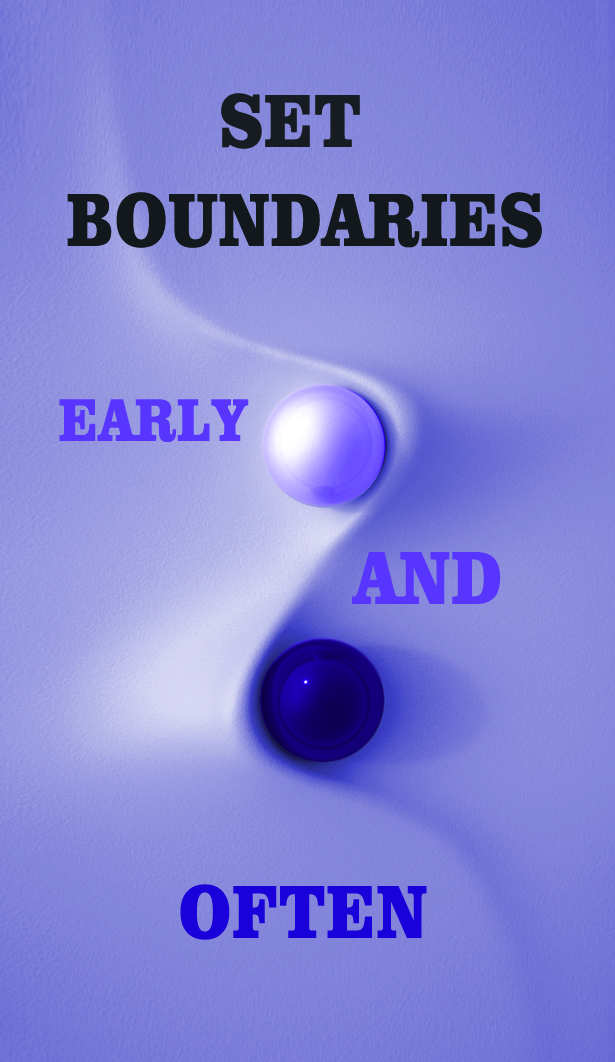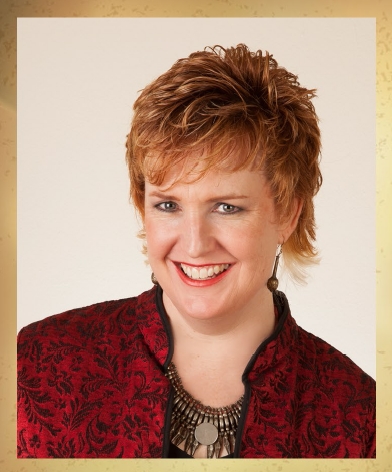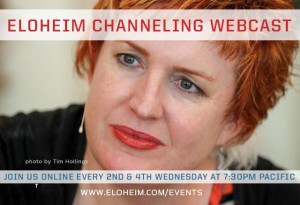My 38 year old daughter is a long-time drug addict, a manipulator, and notably the mom of my 3 year old grandson. My grandson lives with my ex-husband but comes to me regularly for long weekends. My daughter comes here to be with her son under my watchful eye. She is still using and lying about it, and my grandson loves her dearly and needs to see her and be with her. I supervise the visits, though I am certain she would never do harm. Recently we believe she stole from us. My dilemma is not bringing more negative emotions into our environment. I am a kind person and don’t want to be otherwise. Yet her disease is impacting us.
It’s complex. She’s sick. It’s sad. I love my daughter but don’t really trust her. What is the most conscious way I can be around her and communicate with her?
Thank you so much for sharing such a big challenge.
Whenever children are involved it feels so much bigger and important. It’s tricky because your daughter is also your child. However
, she is an adult and the focus really becomes your grandson. Is he at risk physically, mentally, or emotionally? If so, that must be the immediate priority. What I share below are options about how you can interact with your daughter differently once you know your grandson isn’t in any risk.
These thoughts come to me immediately:

Thanks to dictionary.com for the definition
You are helping to raise your grandson, that is kindness.
You are making it possible for your daughter to spend time with your grandson, that is kindness.
You are reaching out to Eloheim and me to find ways to improve your relationship with your daughter, that’s is kindness.
YOU ARE KIND
That doesn’t mean “anything goes” or “take what you want” or “treat me disrespectfully.”
They are not the same things.
You said, “My dilemma is not bringing more negative emotions into our environment.” Let’s look at the idea of “negative emotions.”
It is very, very, very, very, very, (VERY), common for folks to wait until they are super angry or frustrated before they set a boundary. This has two immediate effects:
1. You feel off your center as you set the boundary
2. You feel like you are being negative as you set the boundary
Setting boundaries with people who are not used to you doing so is a BIG change. Often, people will resist this change. That’s why boundaries must be reinforced. If you wait until you are super angry to set a boundary, it’s easy to make the assumption that you have to be super angry to reinforce (or reiterate) that boundary. That can really feel like you are bringing in negative emotions (and being unkind).

Boundaries must be set early in the dynamic and as often as needed. At first, it’s likely to feel uncomfortable. That’s normal. This is change. Change is often uncomfortable. However, unless you generate change, it’s unlikely that anyone else in the dynamic will. It’s up to you.
How do you know which boundaries to set?
This requires you to know and value your own truth. To value your truth above being liked or appreciated. To value your truth more than you value the opinions of others.
You suspect your daughter stole from you. Perhaps a boundary could be that she no longer gets to visit your grandson at your home thus limiting the opportunities to steal from you again? Meet at the park or another public place.
If your reaction to this is something along the lines of, “Oh I couldn’t do that to her!” check in with what your truth is when you don’t consider her feelings at all.
Now, this doesn’t mean you have to act upon what you discover. Nonetheless, it is a powerful tool for making sure you are considering all of your options. I’m sure you know what she prefers and how much or little she takes your feelings into account in determining her preference. Let’s find out what your truth is if you don’t take her feelings into account.
It’s a spectrum. One one end is “only my feelings” and on the other end is “only her feelings.” You are likely to find someplace in the middle as the action place. However, it really feels like up to now, it’s consistently her end of the spectrum that is calling the shots.
Trust
Trust is earned. Period.
She hasn’t earned it. Therefore it’s completely reasonable to not trust her.
Here’s an idea. Say out loud (as many times as you like), “I DON’T TRUST HER.” See what this brings up in you. Don’t fall for the temptation to be mean to yourself because you don’t trust your daughter. Let yourself see what’s truly there when you own, “I DON’T TRUST HER.”
I’m reminded of Eloheim’s teachings on But:
In a sentence, the words before the “but” are typically your truth and the words after the “but” tend to be you modifying your truth (usually because you are trying to control how your truth is received by others).
Examples:
I don’t trust her, but she is my daughter so I have to ____________.
She is disrespectful, but I have to let her come over anyway.

What I find most powerful when I’m in a situation where I’m tempted to “but” my truths away, is to use Short, Factual Statements instead.
Your brain is accustomed to thinking a certain way and it tends to continue to think the same way unless you intervene. Spiritual growth and other types of transformation require that you think in new ways. We often refer to this as rewriting the neural pathways. One of the ways we’ve found to help you rewrite your neural pathways is to use the tool we call “short, factual statements.”
Here is how it works: identify something that you wish to change in your life and make a short, factual statement about it that ends with a period. Don’t follow your statement with a “but” or a “because,” and remember, we aren’t doing short, factual paragraphs!
Make sure that the short, factual statement is grounded in the moment. Your statement should be about how you’re feeling and what you’re experiencing now.
Always end the short, factual statement with the word PERIOD.
Adding the word “period” at the end let’s your brain know that you aren’t just thinking the same thoughts you have always thought, but that you are doing something new.
Immediately after making your short, factual statement (followed by the word “period”), observe what you are tempted to think about next. Our experience is that you will start thinking about the past or the future, or both.
It is extremely important that you catch yourself here and observe the temptation to leave the moment rather than just start to rethink your habitual thought patterns. Make a short, factual statement about the thought you are tempted to have. Now observe where your thought patterns want to take you. Continue making short, factual statements in this manner.
*** (this aspect is really vital)
You are not making a short, factual statement to get an answer to a problem; you are making a short, factual statement in order reveal habitual thought patterns. You are using short, factual statements to identify the static that is clogging up the moment. Once the static is cleared, you will be able to access the moment and your soul’s insight about the situation.
***
An example:
Eloheim: What is something going on that you would like to change?
Response: My back hurts.
Eloheim: Your habitual thinking pattern would be something like this: “Oh, my back hurts, oh God, it’s going to be so hard to go to work tomorrow. Oh, I don’t think I’m going to sleep well, oh, I wonder if it’s because the bed is no good. Oh, I wonder if it’s because I’m stressed out. Oh, my back has hurt for so many years, oh, it’s probably going to hurt for so many more.”
A short, factual statement is: “My back hurts.” Short, factual statements are stated in the present tense. This is an incredibly important part of this tool. You have to say it in the present tense.
It’s not: “God, I’ve really been bummed out in the past because my back hurt.” That’s not what we’re shooting for. You want to ground the tool in the moment. “My back hurts.”—first step. Then, important, but funny, step. We always try to throw in a little humor wherever it fits. “My back hurts. Period.” And say the period out loud. The reason you say the period out loud is because that is actually what makes your brain get on notice something new is happening. If you just say, “My back hurts,”—you’ve said that a million times. “My back hurts, period,” gives your brain an exclamation point. It says to your brain, “Something new is going on here. Something is happening. My back hurts, period.”
And if you can do this out loud, or at least under your breath, that helps, too, because then it’s not just more mind chatter. It’s literally being put into your reality. So, “My back hurts, period.”
What happens within you after you make that short, factual statement?
Response: Just memories of weeks on end of pain and not being able to do what I wanted to, and having money issues because I couldn’t go to work.
Eloheim: Perfect. This is what we were trying to get at. So, all those fears and memories and “Oh, my Gods” come up and you are tempted to obsessively think about them again. Once you have spent some time in the past, you will typically start thinking about the future. Your habitual thinking patterns don’t give you access to the moment and the moment is the only place anything actually transforms. Using short, factual statements will help you stay in the moment and actually change your experience.
Going back to our example: “My back hurts, period.” Say your short, factual statement and then just wait and see where you go. Continuing with your example, you went into, “Oh my God, I might not make enough money because I can’t work.”
The key here is to hold yourself in the moment by making short, factual statements about what’s true right now. So, you say, “My back hurts, period.” And then you watch. “Wow, I’m tempted to go into the past, period.” And then you watch, “Wow, there I go off into the future, period.” Then, eventually, what happens is that the past and the future cannot hold you because you’ve made short, factual statements about them rather reuse the old neural pathways and habitually think about the past and the future.
That’s the magic in this, when you acknowledge the temptations that seek to pull you out of the moment, the temptations lose their power. So, it’s not: “Oh, God, I’m such an idiot, I thought about the past and the future again.” We don’t play that game, ever. It’s short, factual statement about what’s currently going on, and then short, factual statements about what comes up when you acknowledge that. Remember to keep your short, factual statements focused on what is actually occurring now. What ends up happening is you experience the moment in a new way and you can attend to what’s happening from the current-moment version of you.
Keep in mind:
When you realize you have something you want to change and you make a short, factual statement about it, be really, really careful that you don’t expect the short, factual statement to give you the answer to the “problem.” That is not the role of the short, factual statement.
The role of the short, factual statement is to reveal the habitual thinking that is blocking insight coming to you about the “problem.”
The temptation is to say, “My back hurts,” and expect the short, factual statement to make your back stop hurting. The role of the short, factual statement in this example is to illuminate what you are actually thinking about when you experience back pain. When you become clear about that, you will be able to actually address the back pain without the baggage of the habitual thoughts getting in your way.
You are the Energetic Leader
You asked, “What is the most conscious way I can be around her and communicate with her?”
You can know your truth, advocate for your grandson, set boundaries, and reinforce them as needed.
As you take clear and steady stands about what is ok and what isn’t, you set the tone for the relationship. This makes you the energetic leader. When you take your place as the energetic leader, people get the opportunity to match energy with you rather than you matching energy with them. Read this amazing post for more on matching energy.

Boundaries with consequences
In order to leave fear, victim hood, and low-vibrational states behind, you set boundaries in the moment — boundaries with consequences. Boundaries without consequences are just hot air coming out of your mouth. For example, you might say, “You can’t speak to me that way,” and then the person speaks to you that way. If you don’t then act (enact the consequences), all you’re doing is blowing hot air. So, boundaries should have consequences attached for the person you’re setting the boundary with.
Is it hard to say to someone, “I’m setting a boundary with you and there are consequences attached”? Of course it is. Is it hard to continue the relationship without boundaries and feel like a victim all the time? We think that’s harder.

As a closing thought, I want to emphasis that actions are far more important than words. Anyone can say anything. Do their actions match? Pay attention to and base your decisions upon their ACTIONS.
Many blessings to you and your family,
Veronica & Eloheim





 Eloheim and Veronica
Eloheim and Veronica @channelers on Twitter
@channelers on Twitter Youtube Channel
Youtube Channel RSS Feed
RSS Feed E-mail Newsletter
E-mail Newsletter
